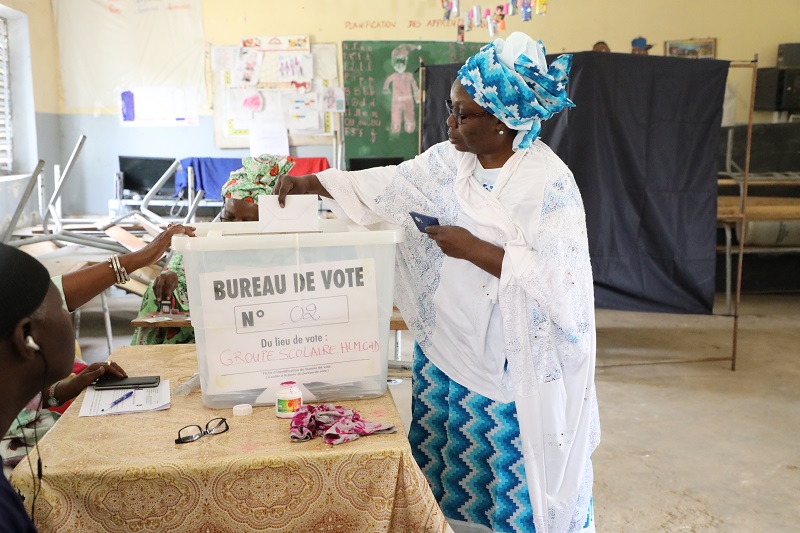Sunday was Election Day in Senegal, as citizens cast their ballots to choose the country’s lawmakers. These elections will serve as a significant test for opposition parties that are attempting to counteract the power of the ruling party in advance of the presidential election that will take place in 2024. The possibility of President Macky Sall running for reelection is a source of concern for many. As a result of yesterday’s legislative elections, the future of the nation’s population is currently up in the air. It is beyond my wildest imagination. It is of the utmost significance. People must vote. “El Hadji Ngagne Ndiaye makes this statement in front of a polling station in Dakar.”
Over 7 million voters were requested to cast their ballots in order to elect the 165 members of the National Assembly. In this country, located in Western Africa, the political climate is tense, and it has been even more hostile ever since the list submitted by the opponent, Ousmane Sonko, was disqualified from consideration for this vote. Three people lost their lives as a result of the protests that took place in June.
Related Posts
After Sunday’s legislative election, the ruling coalition of Senegal’s President Macky Sall announced on Monday that it had won 30 of the country’s 46 administrative departments, giving it a slender majority in parliament. Aminata Toure, a former prime minister who led the list of candidates for the ruling coalition in the legislative election, released the partial results on national television early on Monday after the poll that took place on Sunday. To the applause and cheers of the audience, Toure declared that “this gives us an unambiguous majority.” She did not reveal how many of the 165 seats in parliament her party was successful in gaining.
In Senegal’s hybrid electoral system, 97 candidates are elected if they earn a majority of votes in administrative departments; 53 candidates from national lists are elected through proportional representation; and 15 candidates are elected by Senegalese citizens living outside the country. Immediately after Toure announced the results of the election, Barthelemy Dias, the mayor of the capital city of Dakar and a leader of the main opposition coalition, which has been energized by economic hardship and fears of Sall’s ambitions for a third term, disputed the results and warned that it was not Toure’s place to announce the results of the election. This opposition coalition is more active now because the economy is bad and people are afraid that Sall wants to run for a third term.
“The people will respond, and the people will come out into the streets tomorrow,” Dias added. “You will tell us where you got your majority.” The political climate in this country of 17.5 million people, which is considered to be one of the most stable democracies in West Africa, has grown increasingly contentious. Sall’s refusal to say for sure that he won’t run for more than two terms as president has made this worse.
After Sall’s major opponent, Ousmane Sonko, was arrested on rape charges the previous year, violent demonstrations broke out across the country. Sonko, who finished in third place in the presidential election that took place in 2019, has stated that he is innocent of the allegations and claims that they are motivated by politics. The primary list of parliamentary candidates submitted by the main opposition alliance, which included Sonko, was found to be in violation of some technical requirements, which led to the resumption of the violent demonstrations that took place one month ago. Because of this, the coalition’s backup list, which is mostly made up of candidates who aren’t well known, will be on the ballot.
The coalition, which recently forged an alliance with another led by Senegal’s former President Abdoulaye Wade, hopes to expand on the advances the opposition gained in the municipal elections held in January, when they took control of Senegal’s largest cities. Former President Wade is 96 years old.

